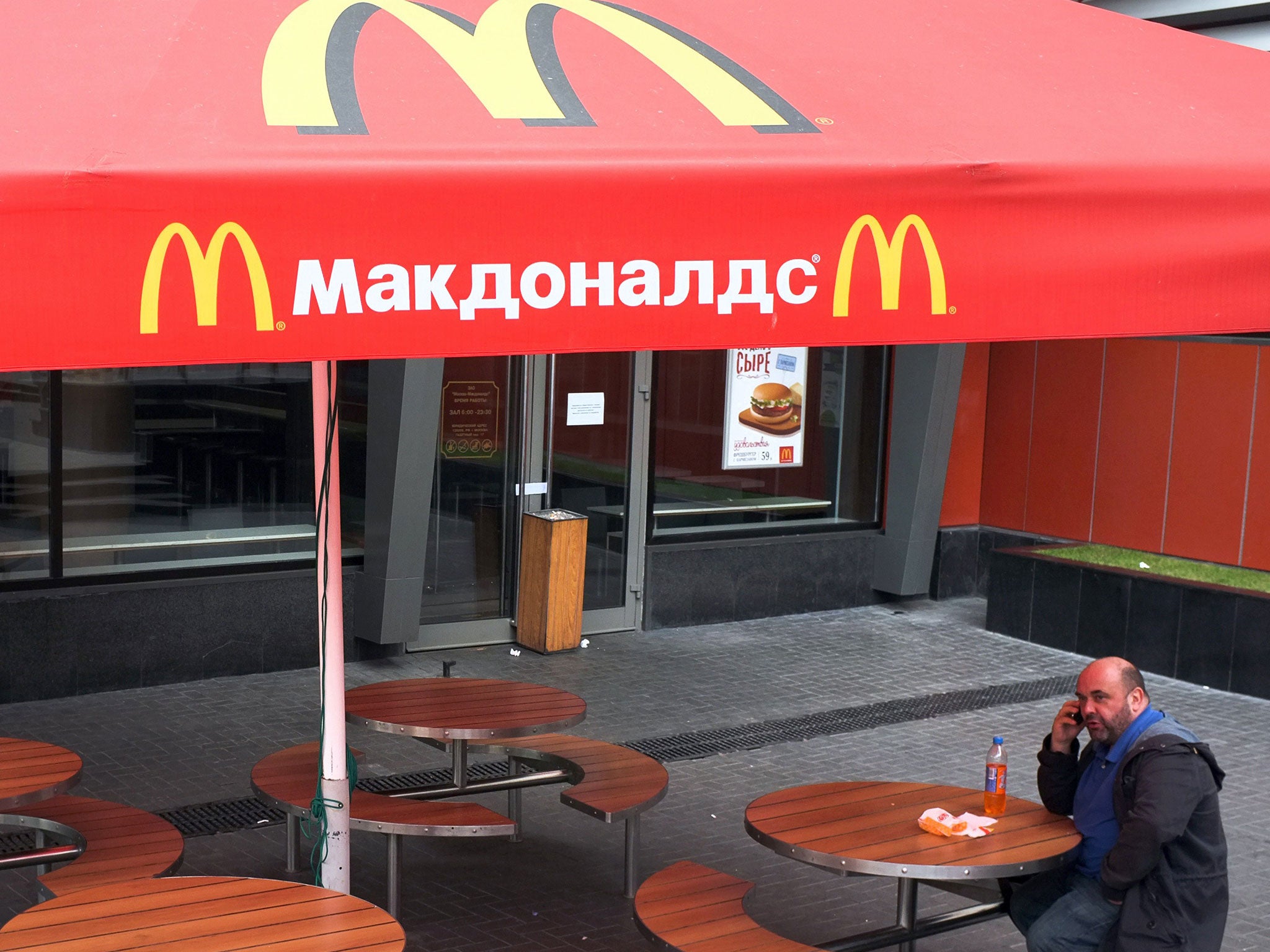Why some businesses are staying in Russia – at least for now
Some companies appear to think that the benefits of staying put outweighs the potential cost of brand contamination from selling their products in Russia, argues James Moore


Guess what my favorite order is”. That was the pinned tweet on McDonald’s feed, as written. Immediately below there was a reply from 23enigma, a user whose own feed was decorated with the colours of the Ukrainian flag: “Guess who is doing business as normal in #Russia no surprise #BoycottMcDonalds.”
Ouch.
There was no “pinned” tweet on Coca-Cola’s feed but the messages it put up on the network came in for similar treatment. The same with Pepsi.
Sometimes there were pictures of the devastation being wreaked in Ukraine. Always there was the question “why are you still doing business in Russia” in some form. It was rarely expressed so politely.
Needless to say, those tweets received no replies from the corporations concerned. Nor did any of the requests for comment that I submitted to the trio.
An indication of corporate embarrassment? What’s the current Pepsi generation supposed to think?
The last week has witnessed a stampede of businesses exiting Russia. Energy giants, with substantial investments in the place, have announced their departures despite the likelihood of incurring huge losses via write offs as a result.
Media companies and entertainment giants have shuttered their services too. There’s no Netflix. The Batman isn’t fighting crime in Russian cinemas. Warner Bros has put the release on hold. Disney’s princesses and its Marvel superheroes are keeping the sleighs and the Quinjets clear of Russian airspace and airtime.
Consumer goods giants have suspended sales of their products, including companies traditionally highly wary of taking a political stance such as Apple. Retail outlets have closed their doors.
Sometimes these sanctions have been imposed partly as a result of the challenges created for businesses by American or other national/international sanctions. Sometimes businesses have withdrawn their services in response to Russian actions, such as its repressive new media law. But many businesses have taken the decision on their own.
There’s no Netflix. The Batman isn’t fighting crime in Russian cinemas ... Disney’s princesses and its Marvel superheroes are keeping the sleighs and the Quinjets clear of Russian airspace and airtime
The thinking of those staying behind appears to be that if we keep our heads down, it will eventually all blow over and then we’ll still be there. We may even derive some credit locally for staying the course. There may also be an entirely cynical mathematical equation at play: if X, the revenues derived from Russia now and in the future, is greater than Y, the potential brand contamination from doing business there in the west, then the answer is that you stay put.
However bad the picture gets? However strong the political/consumer pressure that’s exerted? However strong the rumblings of discontent from investors become? That is becoming an issue too. We hall see.
Coke and Pepsi are bitter rivals. Books have been written about their competition. But the fact that both are currently hanging around helps them. Where else do soda drinkers go? Those with an interest in public health would shout: drink water. Some of the politically committed may do that. But perhaps not enough to significantly hurt the bottom line.
McDonald’s is the more interesting case. It has managed to rehabilitate its image since the days of the McLibel case, when the company launched a libel action against a pair of London environmental activists over claims made in a leaflet few saw. The judge ruled that the pair had libelled the corporation and ordered them to pay £60,000 damages, reduced on appeal to £40,000. McDonald’s has not pursued them for the money.
The David vs Goliath nature of the case damaged the company’s public image far more than the leaflet ever did, and ultimately opened a can of worms. It, along with other exposes of the fast food industry, and unhappiness about the lack of healthy options on the menu, tarnished the famous golden arches.
These days, the company offers McPlant burgers and main meals under 600 calories in addition to its Big Macs. The (in)famous plastic toys have been phased out. There’s even a section of the website devoted to sustainability featuring pretty pictures of wind turbines.
It won’t count for much if the company becomes associated in the public mind with the slaughter currently going on in Ukraine.
McDonald’s has a big business in Russia but some revenues, as BP realised when it announced plans to divest its stake in Russian energy giant Rosneft, come at a cost that many feel simply isn’t worth incurring.






Join our commenting forum
Join thought-provoking conversations, follow other Independent readers and see their replies
Comments